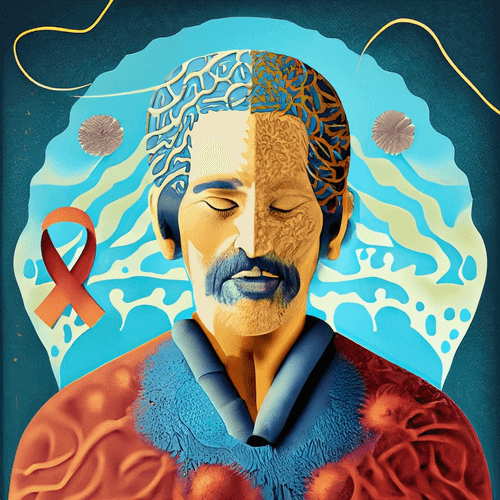Prostate cancer is a serious health concern for men, especially African American men who face higher risk compared to other ethnic groups. This article talks about the different risk factors, such as genetic and environmental influences, that contribute to the prevalence of prostate cancer in African American men. It also highlights the disparities in treatment and diagnosis experienced by this population, emphasizing the importance of early screening and awareness. By comprehending these factors and taking proactive measures to minimize risk, African American men can enhance their outcomes and access essential support for managing prostate cancer.
Key Takeaways:
- African American men are at a higher risk for prostate cancer and face disparities in treatment and diagnosis due to genetic and environmental factors.
- Early screening and awareness are crucial in detecting prostate cancer early and improving treatment outcomes for African American men.
- Making lifestyle changes and utilizing available resources can help reduce the risk of prostate cancer in African American men.
What is Prostate Cancer?
Prostate cancer is a type of malignancy that begins in the prostate gland, a small walnut-shaped gland in men responsible for producing seminal fluid.
When cancer develops in the prostate gland, it can grow slowly and remain localized, or it may spread rapidly to other parts of the body. The exact cause of prostate cancer is not fully understood, but factors such as age, genetics, and family history play a role in increasing the risk. Common symptoms include frequent urination, blood in urine or semen, pain in the pelvic area, and erectile dysfunction.
- Early detection through screening tests like the prostate-specific antigen (PSA) test is crucial for timely diagnosis and effective treatment.
- Prostate cancer treatment options may include surgery, radiation therapy, hormone therapy, chemotherapy, or a combination of these depending on the stage and aggressiveness of the cancer.
How Does Prostate Cancer Affect African American Men?
Prostate cancer significantly affects African American men, who have higher incidence and mortality rates compared to other racial groups, highlighting the urgent need for targeted awareness and healthcare interventions.
What Are The Risk Factors for Prostate Cancer in African American Men?
The risk factors for prostate cancer in African American men include genetic predispositions, socioeconomic status, and environmental influences.
Genetic predispositions play a significant role in prostate cancer among African American men, with studies showing a higher prevalence of certain genetic mutations that increase susceptibility to the disease.
Socioeconomic factors such as limited access to healthcare, higher stress levels, and disparities in screening and treatment options contribute to the heightened risk faced by this demographic.
Environmental influences, such as exposure to toxins, unhealthy diets, and lifestyle habits prevalent in certain communities, also play a crucial role in exacerbating the risk of prostate cancer among African American men.
Are There Genetic Factors That Increase the Risk of Prostate Cancer in African American Men?
Genetic factors play a crucial role in increasing the risk of prostate cancer among African American men, with specific genetic variants being identified through genetic testing.
These genetic variants can impact an individual’s susceptibility to developing prostate cancer, as certain mutations may predispose them to the disease. By understanding one’s genetic makeup through genetic testing, healthcare providers can assess the likelihood of developing prostate cancer and tailor personalized treatment plans accordingly. Early detection of these genetic variants can lead to proactive interventions, such as preventive measures or targeted therapies, which can improve outcomes and quality of life for individuals at risk.
What Are the Environmental Factors That Increase the Risk of Prostate Cancer in African American Men?
Environmental factors such as exposure to environmental pollutants, physical inactivity, and obesity contribute significantly to the risk of prostate cancer in African American men.
Environmental pollutants, such as air pollution and chemical toxins, can damage prostate cells and DNA, leading to an increased risk of cancer development. Inactivity and obesity further exacerbate this risk by promoting inflammation and hormonal imbalances in the body, which are known to fuel the growth of cancer cells.
What Are the Disparities in Prostate Cancer Treatment and Diagnosis Among African American Men?
Disparities in prostate cancer treatment and diagnosis among African American men are profound, driven by systemic racism and inequities within the healthcare system that limit access to quality medical care.
What Are The Barriers To Accessing Quality Treatment for Prostate Cancer?
The barriers to accessing quality treatment for prostate cancer among African American men include economic constraints, limited healthcare infrastructure, and lack of culturally competent care.
Economic constraints play a significant role, as many African American men may face financial difficulties that prevent them from affording necessary treatments and medications. In addition, systemic factors such as insufficient access to healthcare facilities and long waiting times can further delay the initiation of proper treatment. Furthermore, cultural barriers can impact their willingness to seek treatment due to mistrust in the healthcare system or cultural stigma surrounding the disease.
How Does Lack of Health Insurance Contribute to Disparities in Prostate Cancer Treatment?
Lack of health insurance significantly contributes to disparities in prostate cancer treatment for African American men by restricting access to timely diagnosis and appropriate medical care.
Without adequate health insurance coverage, African American men may face significant financial barriers when seeking preventive screenings, diagnostic tests, or treatment options for prostate cancer. This lack of access to crucial medical services often leads to delays in detection and a higher likelihood of presenting with advanced stages of the disease.
Uninsured or underinsured individuals may avoid seeking medical help altogether due to concerns about exorbitant costs, ultimately risking their health and well-being. The inability to afford medications, consultations, or follow-up appointments can further hinder proper management of the condition.
What Are The Challenges in Diagnosing Prostate Cancer in African American Men?
Diagnosing prostate cancer in African American men presents unique challenges such as delayed screenings, implicit biases in healthcare, and the need for more effective use of the PSA test.
Delayed screenings in African American men can deprive them of early detection and treatment opportunities, leading to more advanced stages of the disease upon diagnosis. Implicit biases in healthcare can further exacerbate disparities in access to timely screenings and quality care, impacting the overall prognosis for these individuals.
PSA tests play a crucial role in improving early detection among African American men by providing a valuable tool for monitoring prostate health and identifying potential abnormalities that may warrant further diagnostic evaluation.
Why is Early Screening and Awareness Important for African American Men?
Early screening and awareness of prostate cancer are critical for African American men, who are at higher risk for aggressive cancer types and poor outcomes, making timely PSA tests and education essential.
What Are The Recommended Screening Guidelines for Prostate Cancer in African American Men?
The recommended screening guidelines for prostate cancer in African American men strongly advocate for earlier and more frequent PSA tests starting at the age of 45.
Prostate cancer is known to disproportionately impact African American men, making it crucial for them to be more vigilant about early detection through PSA screening.
Studies have shown that African American men are more likely to develop aggressive forms of prostate cancer at a younger age compared to other ethnic groups, underscoring the significance of adhering to the recommended screening protocols.
Early detection through regular PSA testing can lead to timely interventions and improved healthcare outcomes, ultimately saving lives.
How Can Early Detection Improve Treatment Outcomes for African American Men?
Early detection of prostate cancer significantly improves treatment outcomes for African American men by allowing for timely and potentially less invasive treatment options.
Being proactive about regular screenings can lead to catching prostate cancer at an early stage when it is more treatable. By detecting the cancer early, doctors can implement targeted treatment plans that may result in better outcomes and higher survival rates. Early detection opens up a wider range of treatment options, including less aggressive therapies that may minimize side effects and complications.
What Steps Can African American Men Take to Reduce Their Risk of Prostate Cancer?
African American men can take several proactive steps to reduce their risk of prostate cancer, including lifestyle changes such as a healthy diet, regular physical activity, and avoiding environmental pollutants.
How Can Lifestyle Changes, Such as Diet and Exercise, Lower the Risk of Prostate Cancer?
Lifestyle changes such as adopting a nutritious diet and incorporating regular exercise can significantly lower the risk of prostate cancer in African American men by combating obesity and promoting overall health.
Incorporating whole foods rich in antioxidants such as fruits, vegetables, and whole grains into your diet can provide vital nutrients that support a healthy prostate. These foods are also known to have anti-inflammatory properties, which can help mitigate the risk of developing prostate cancer.
Engaging in moderate-intensity physical activities, like brisk walking or swimming, for at least 150 minutes per week can not only improve cardiovascular health but also contribute to maintaining a healthy weight. Research shows that excess body fat, especially around the abdomen, is linked to a higher risk of prostate cancer among men.
What Are Some Resources Available to Support African American Men with Prostate Cancer?
Various resources are available to support African American men with prostate cancer, including the Prostate Cancer Foundation (PCF), the RESPOND study, and community healthcare initiatives.
African American men facing prostate cancer also benefit from the guidance and assistance of organizations like the American Cancer Society and the National Comprehensive Cancer Network (NCCN). These institutions offer specialized programs, information, and support groups. Research studies like the MEN ACT study contribute to understanding and improving treatment strategies for this demographic. Community programs and outreach efforts play a crucial role in educating men about early detection and navigating treatment options.
Frequently Asked Questions
What is prostate cancer and why is it important for African American men to understand its impact?
Prostate cancer is a type of cancer that affects the prostate gland in men. It is important for African American men to understand its impact because they have a higher risk of developing the disease compared to other ethnic groups.
What are the main risk factors for prostate cancer in African American men?
There are several risk factors for prostate cancer in African American men, including genetic factors, environmental factors, and lifestyle factors such as diet and exercise. African American men also tend to develop prostate cancer at a younger age and have a family history of the disease, which increases their risk.
What are the disparities in prostate cancer treatment and diagnosis for African American men?
Unfortunately, there are significant disparities in prostate cancer treatment and diagnosis for African American men. They are less likely to receive early screenings, resulting in a higher rate of advanced stage diagnosis. They also tend to receive lower quality of care and experience higher mortality rates compared to other ethnic groups.
Why is early screening and awareness important for African American men?
Early screening and awareness are crucial for African American men because it can help detect prostate cancer at an early stage when it is most treatable. Regular screenings can also help reduce the risk of developing advanced stage prostate cancer and increase the chances of successful treatment.
What steps can African American men take to reduce their risk of developing prostate cancer?
African American men can take proactive steps to reduce their risk of developing prostate cancer. This includes maintaining a healthy lifestyle with a balanced diet and regular exercise, reducing exposure to environmental toxins, and getting regular screenings and check-ups.
What support and resources are available for African American men affected by prostate cancer?
There are several support and resources available for African American men affected by prostate cancer, including support groups, counseling services, and educational materials. These resources can help provide emotional and practical support, as well as information on treatment options and managing the disease.




